Presidents ranked from worst to best
BY ELISHA FIELDSTADT
UPDATED ON: FEBRUARY 3, 2021 / 1:14 PM / CBS NEWS
 GETTY IMAGES
GETTY IMAGESIt's official: Donald Trump is not going down in history as America's best president — or the worst. According to the very latest available survey of presidential historians, there are two presidents who delivered worse performances during their tenure in the White House.
Who are they? And where would other recent presidents, such as George W. Bush and Barack Obama, rank on such a list? Here are the results of a sweeping survey of historians, political scientists and presidential scholars maintained by the Siena College Research Institute. Since 1982, the SCRI Survey of U.S. Presidents has been conducted during the second year of the first term of a new president, ranking presidents across 20 different categories, ranging from integrity to ability to compromise.
Biographical information for each president from WhiteHouse.gov and the Miller Center at the University of Virginia.
44. Andrew Johnson (1865-1869)
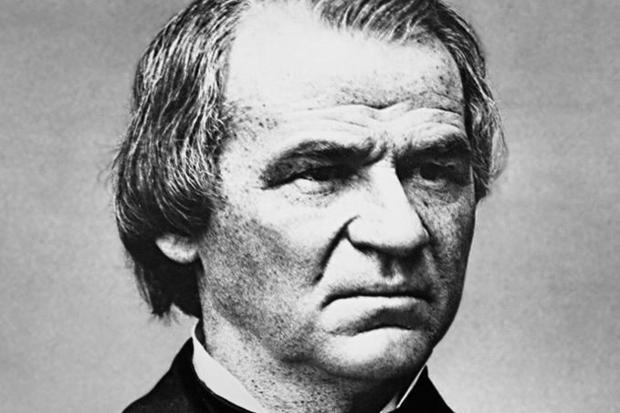 WHITEHOUSE.GOV
WHITEHOUSE.GOVHistorians gave Johnson the lowest ratings overall.
Johnson, who became president when Lincoln was assassinated, clashed with fellow Republicans over Reconstruction in the wake of the Civil War. He often tried to side-step Congress and became the first president ever to face impeachment, but was acquitted by one vote.
43. James Buchanan (1857-1861)
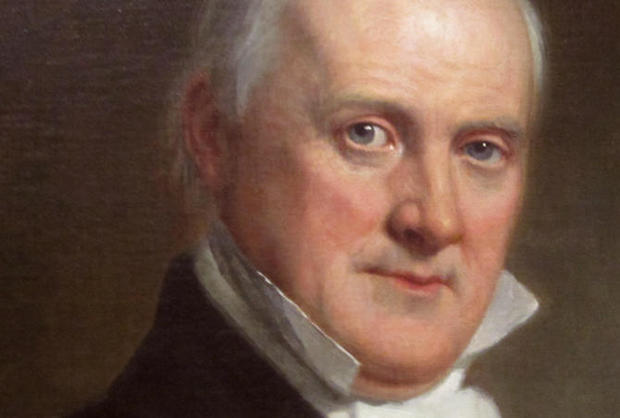 WHITEHOUSE.GOV
WHITEHOUSE.GOVHistorians have criticized Buchanan over his poor crisis leadership.
He couldn't seem to grasp the enormity of America's divisions over slavery, ignoring the strife and letting the issue fester in the years leading up to the Civil War.
42. Donald Trump (2017-2021)
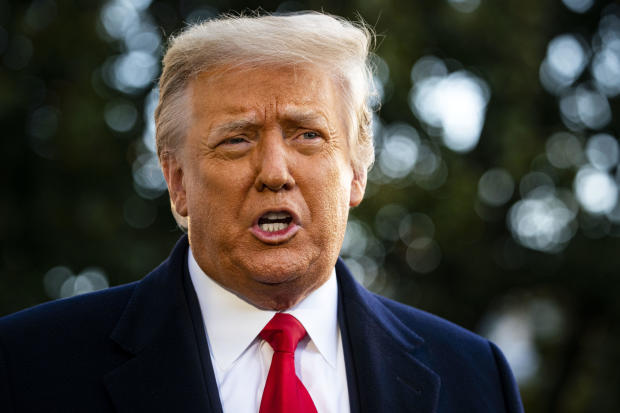 AL DRAGO/BLOOMBERG VIA GETTY IMAGES
AL DRAGO/BLOOMBERG VIA GETTY IMAGESDonald Trump has the dubious honor of being the only U.S. president to face impeachment twice. In the Siena survey, Trump received the lowest rank — 44th out of 44 — in the categories of integrity, intelligence, and overall ability. His highest ranking — 10th — came in the "luck" category.
41. Warren G. Harding (1921-1923)
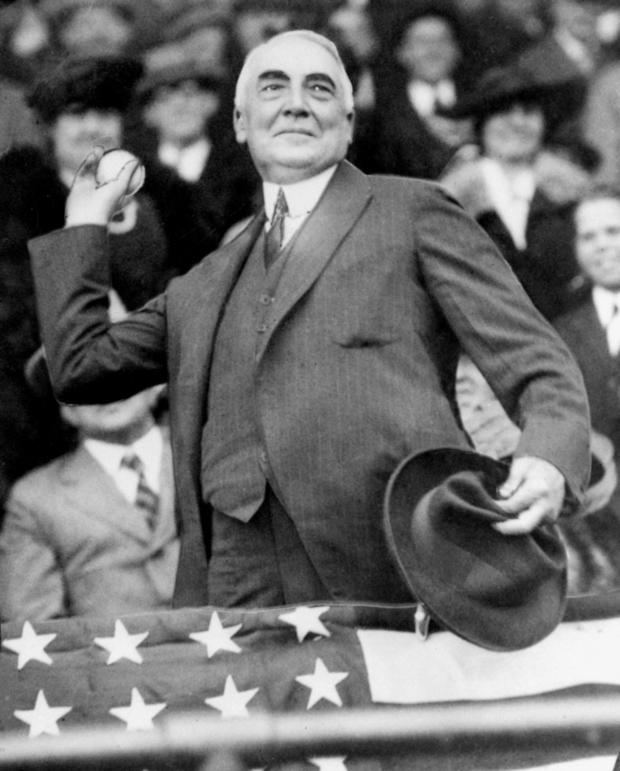 AP
APScandals that plagued Harding's presidency, like the infamous Teapot Dome scandal in which cronies profited from secret oil deals, keep him low in the rankings.
40. Franklin Pierce (1853-1857)
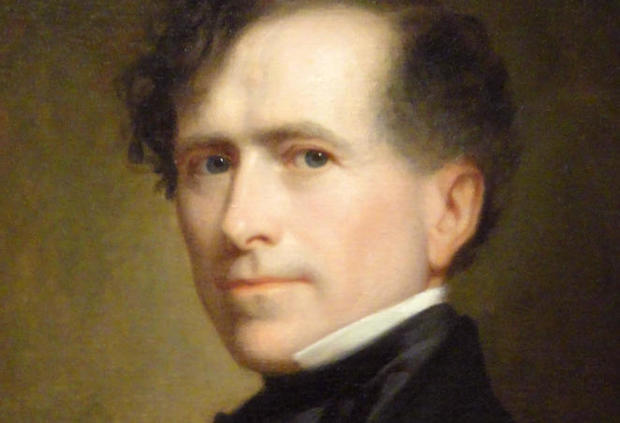 WHITEHOUSE.GOV
WHITEHOUSE.GOVHistory has judged Pierce unfavorably for policies that helped put the nation on the path to civil war.
He signed into law the Kansas-Nebraska act, which allowed residents of new territories to decide on the legality of slavery for themselves.
39. William Henry Harrison (1841)
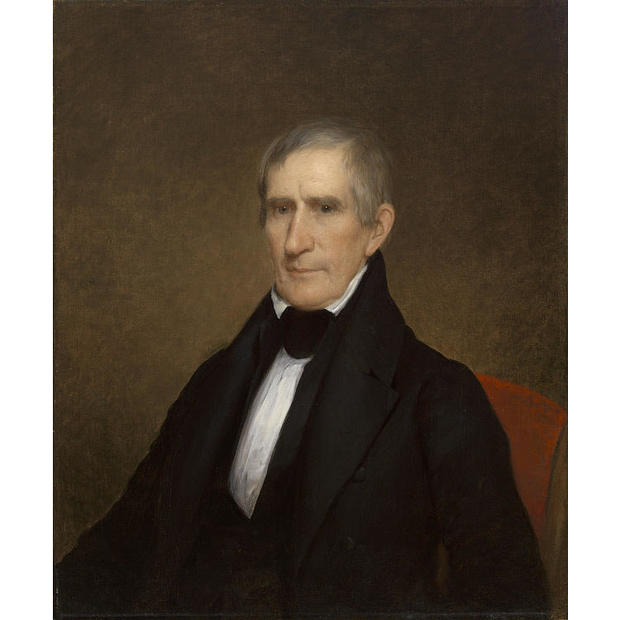 ALBERT GALLATIN HOIT/NATIONAL PORTRAIT GALLERY
ALBERT GALLATIN HOIT/NATIONAL PORTRAIT GALLERYHarrison's crisis leadership skills have failed to impress, but historians have little to judge him on, given that Harrison died on his 32nd day in office.
38. Millard Fillmore (1850-1853)
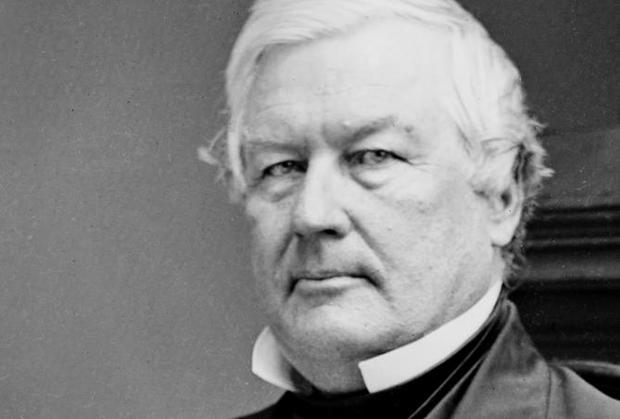 WHITEHOUSE.GOV
WHITEHOUSE.GOVHistorians fault Fillmore for signing the Fugitive Slave Act, which required that escaped slaves be returned to their masters.
37. John Tyler (1841-1845)
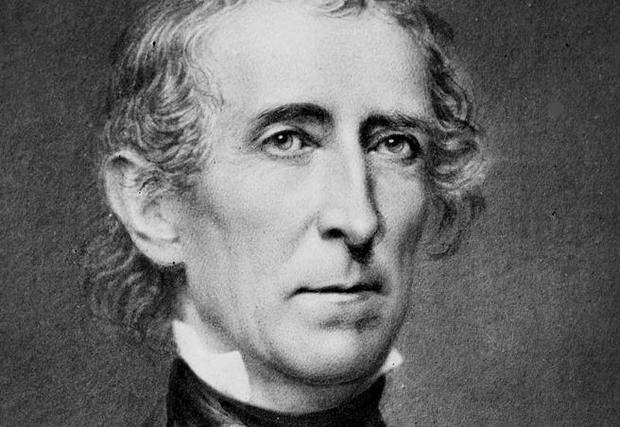 WHITEHOUSE.GOV
WHITEHOUSE.GOVTyler, the first vice president ever elevated to the presidency when his predecessor died, was a strong advocate of states' rights. He later joined the Southern Confederacy.
36. Herbert Hoover (1929-1933)
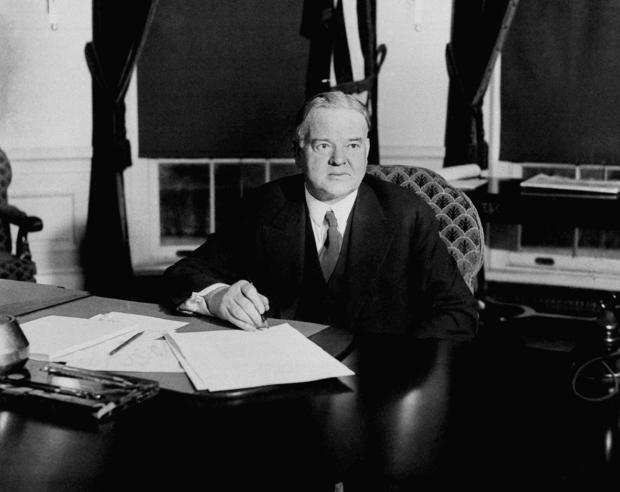 AP
APHoover's economic management rating drags down his ranking.
Months after his election, the stock market crashed and the U.S. spiraled into the Great Depression.
35. Benjamin Harrison (1889-1893)
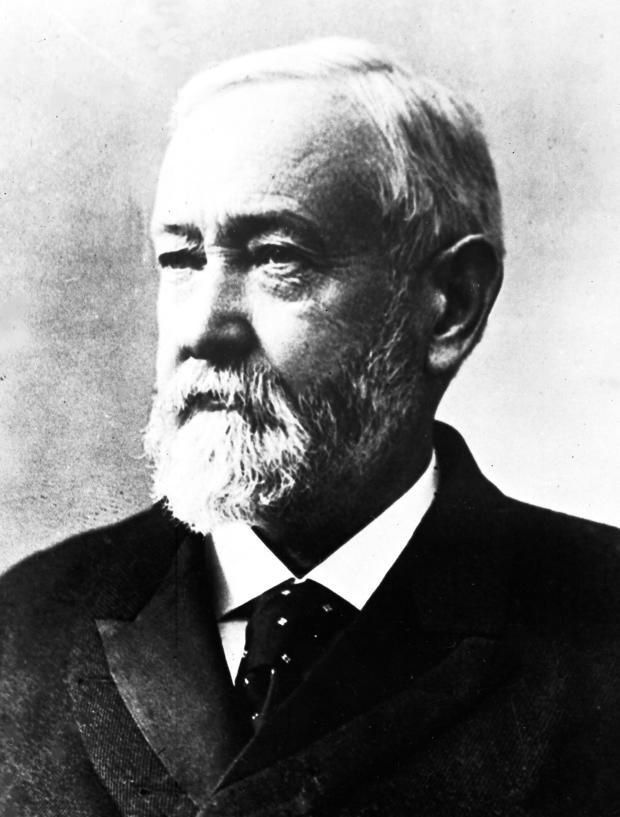 AP
APHistorians have faulted Harrison for poor communication skills and lackluster leadership ability.
Harrison also tried to fix a high tariff problem, but prices rose and prosperity suffered.
34. Chester A. Arthur (1881-1885)
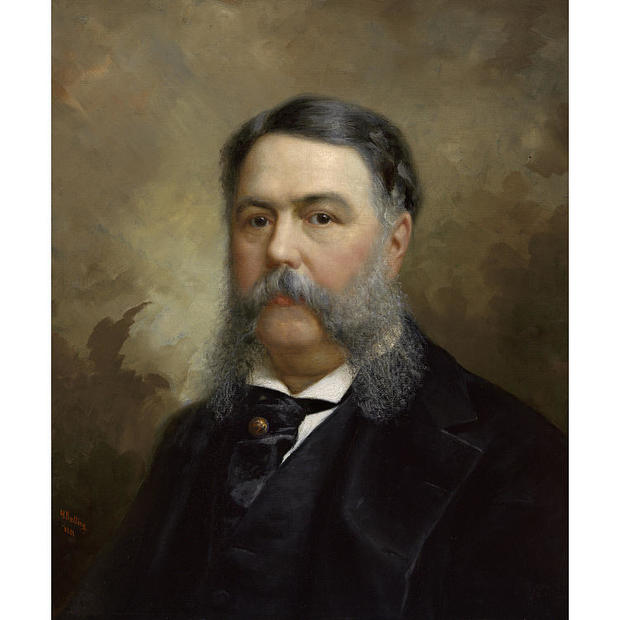 OLE PETER HANSEN BALLING/NATIONAL PORTRAIT GALLERY
OLE PETER HANSEN BALLING/NATIONAL PORTRAIT GALLERYAmong some historians, Arthur gets low ratings for his failure to ensure equal justice for all.
His administration enacted the first immigration law, which excluded Chinese people as well as "paupers, criminals, and lunatics."
33. George W. Bush (2001-2009)
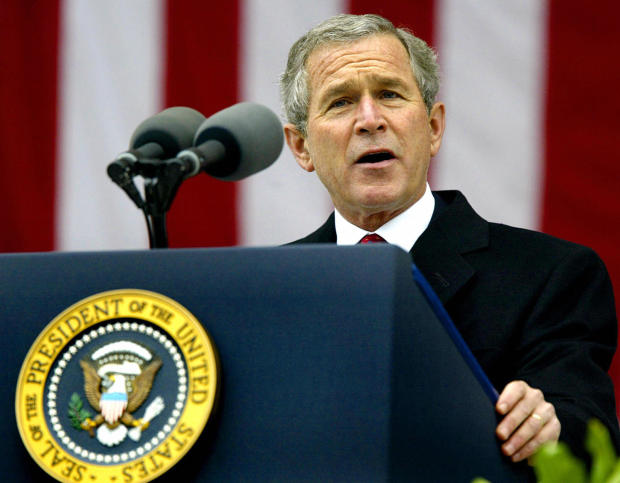 TIM SLOAN/AFP/GETTY IMAGES
TIM SLOAN/AFP/GETTY IMAGESIn the Siena survey, Bush got his lowest ranking — 41st out of 44 — in the category of intelligence. But his overall standing has inched upwards in recent years.
His most controversial decision was the 2003 invasion of Iraq based on the mistaken belief that Iraqi President Saddam Hussein had weapons of mass destruction.
In the years since he left office at the height of an economic crisis, historians surveyed by C-SPAN have reevaluated his record and he's moved up in the rankings, from 36th place in 2009 to 33rd place today.
32. Rutherford B. Hayes (1877-1881)
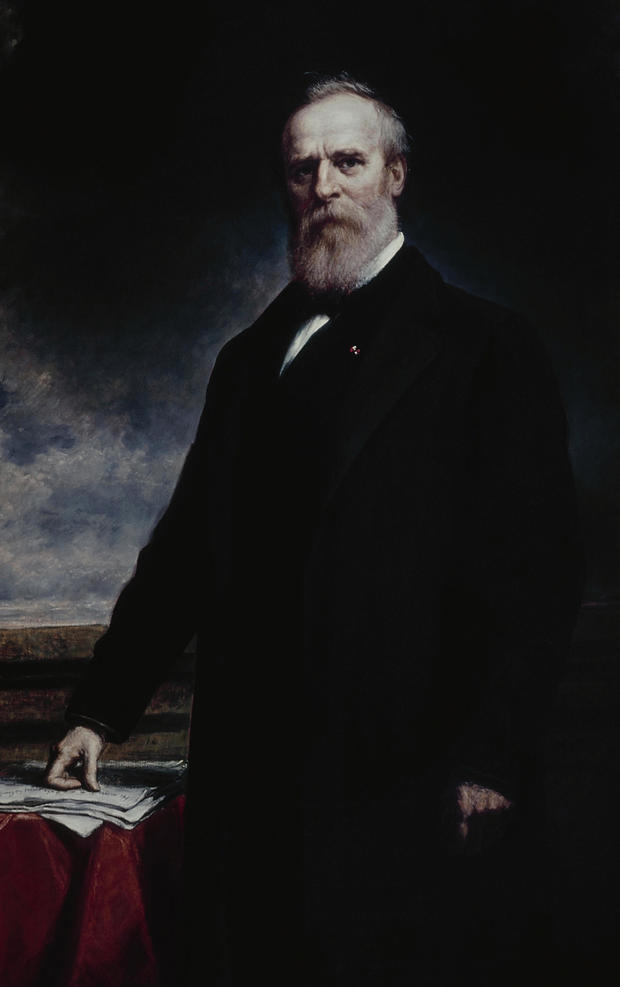 AP
APHistorians have criticized Hayes' record on equal justice as he oversaw the end of Reconstruction.
Hayes pledged to protect the rights of African Americans in the South but then withdrew federal troops, preferring what he hoped would be "wise, honest, and peaceful local self-government." Instead, Southern states swiftly imposed Jim Crow.
31. Calvin Coolidge (1923-1929)
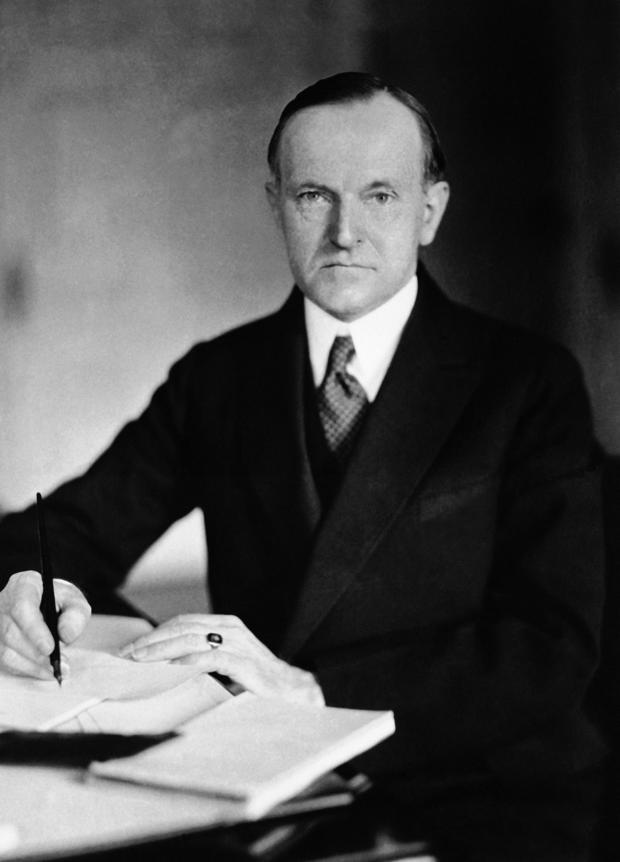 AP
APCoolidge is rated poorly for crisis leadership, lack of imagination, and failing to work for equal justice for all Americans.
He refused to use the country's economic boom to help struggling farmers and workers in other flailing industries.
30. Zachary Taylor (1849-1850)
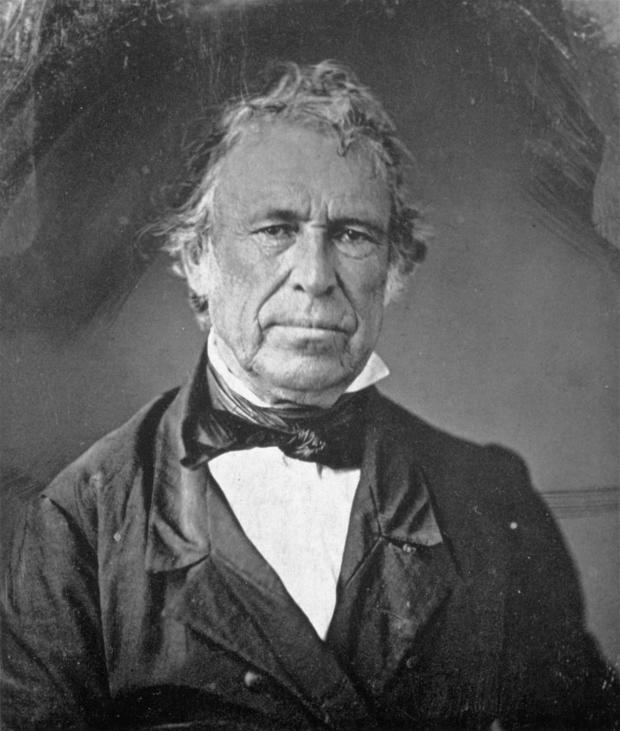 AP
APTaylor, a former military hero, served less than a year and a half in office before his death.
When it came to the searing debate over slavery, he tried to skirt the issue by holding that states could decide on slavery laws on their own.
29. Richard Nixon (1969-1974)
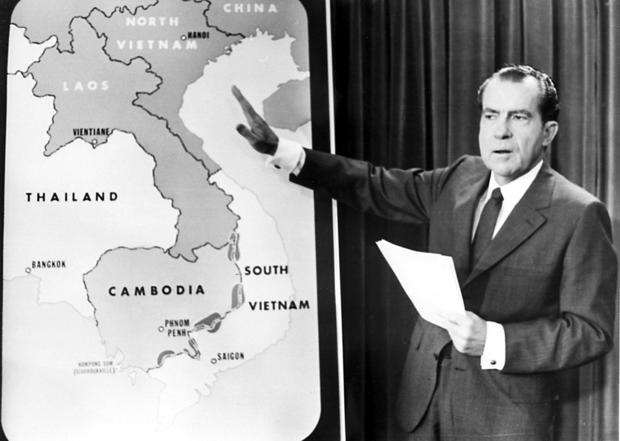 AFP/GETTY IMAGES
AFP/GETTY IMAGESNixon is rated extremely low for integrity.
His accomplishments included ending the draft and enacting policies to protect the environment. He negotiated arms control with Russia and made a diplomatic breakthrough with communist China. But Nixon's triumphs were overshadowed by the Watergate scandal, which stemmed from a break-in at the offices of the Democratic National Committee during his reelection campaign. On Aug. 9, 1974, Nixon became the first U.S. president to resign.
28. James A. Garfield (1881)
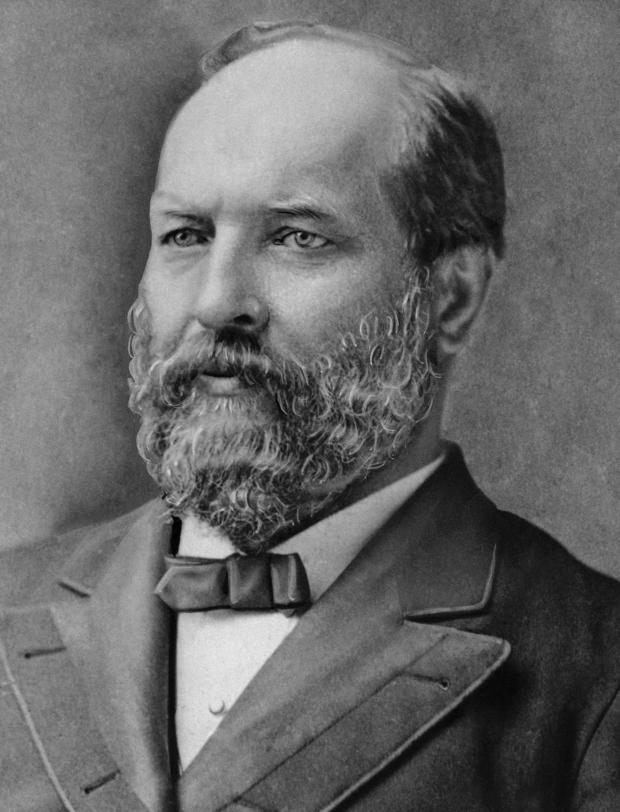 AP
APGarfield, a former Civil War general and congressman from Ohio, got poor marks in the survey for his foreign policy skills but better ones for integrity and intelligence.
He was assassinated just 200 days into his presidency.
27. Gerald Ford (1974-1977)
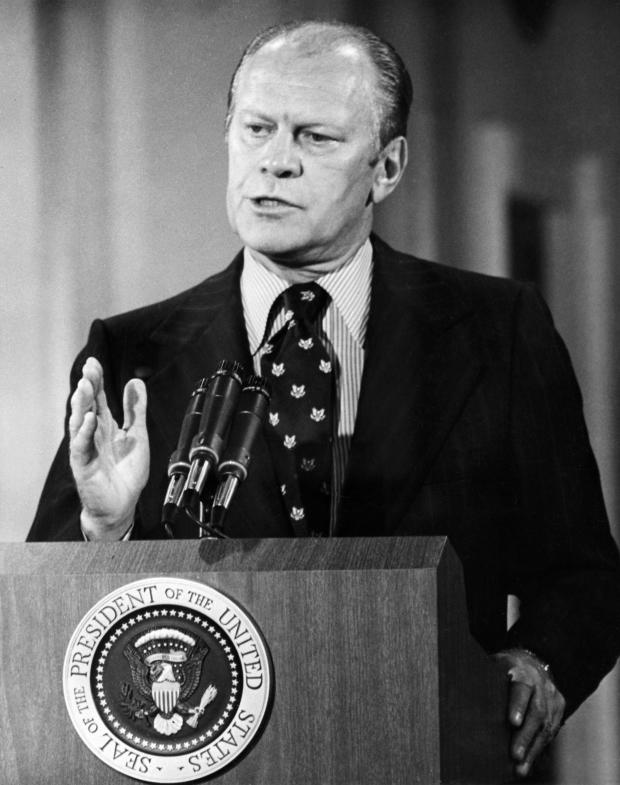 AFP/GETTY IMAGES
AFP/GETTY IMAGESFord ranked highest for his integrity and lowest for his vision and ability to set an agenda.
Assuming the presidency after Richard Nixon's resignation, Ford tried to move the country past the political crisis by granting Nixon a full pardon. Ford won the Republican nomination in 1976, but lost the election.
26. Jimmy Carter (1977-1981)
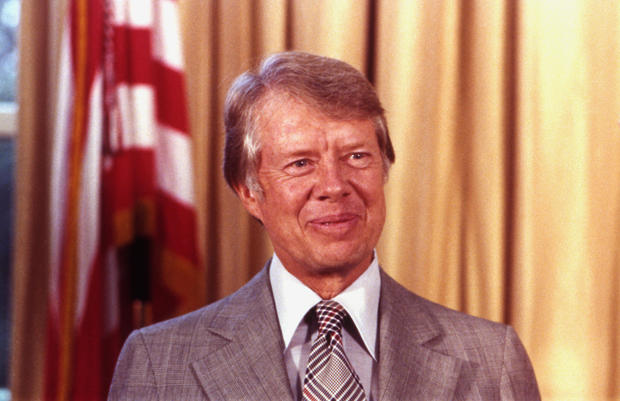 AP
APSome historians have expressed admiration for Carter's pursuit of equal justice, but not for his crisis leadership.
He is credited with creating developing a national energy policy to deal with oil shortages, and brought Israel and Egypt together for the Camp David accords. But his administration struggled with economic stagnation and experienced setbacks like the Iran hostage crisis. He lost his bid for a second term.
25. Martin Van Buren (1837-1841)
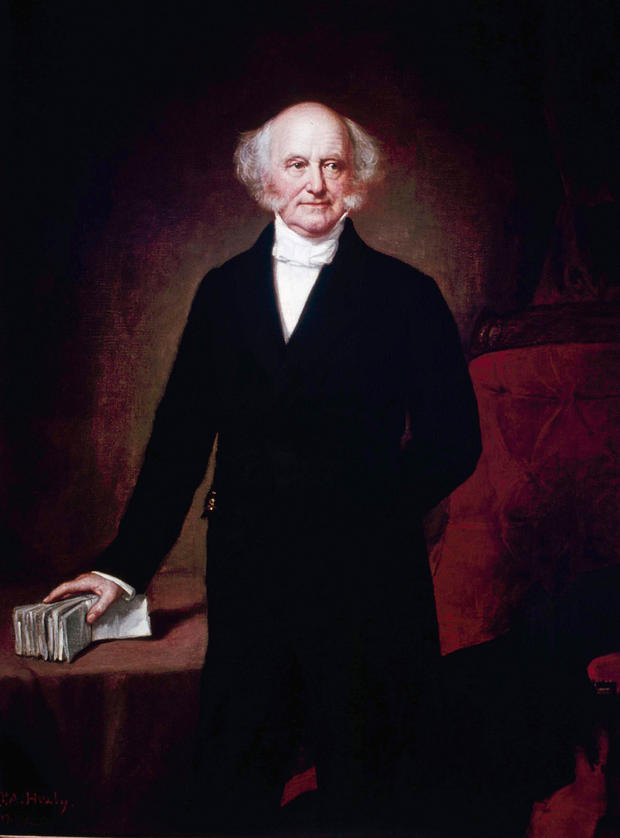 AP
APVan Buren received low rankings for his economic management.
When he assumed the presidency, the economy was booming, but less than three months later, businesses and banks were failing, and historians believe his policies only made things worse.
24. Ulysses S. Grant (1869–1877)
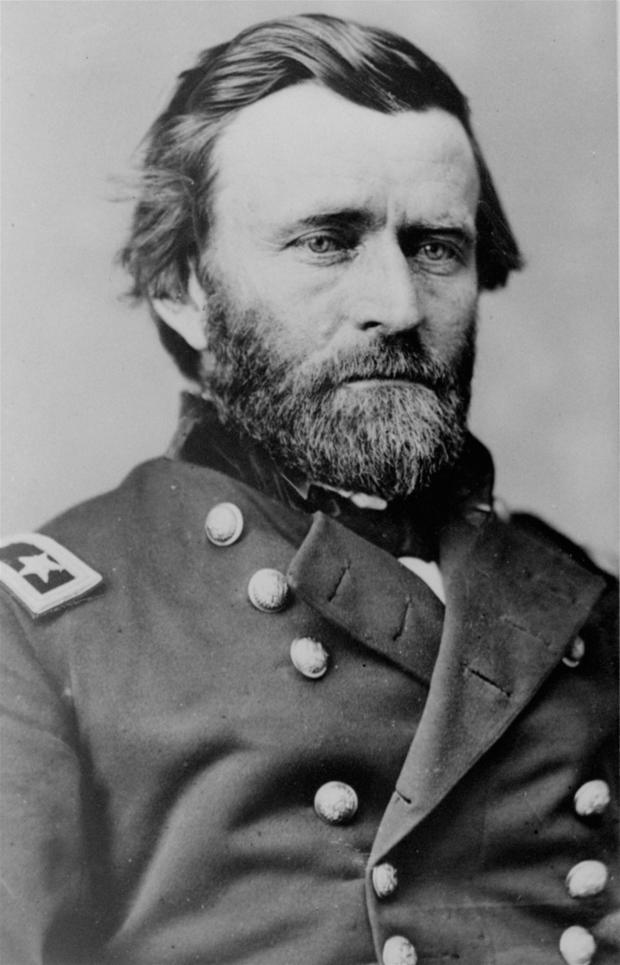 AP
APGrant led the North to victory in the Civil War, but received low marks for his administrative skills once he assumed the presidency.
23. Grover Cleveland (1885-1889 and 1893-1897)
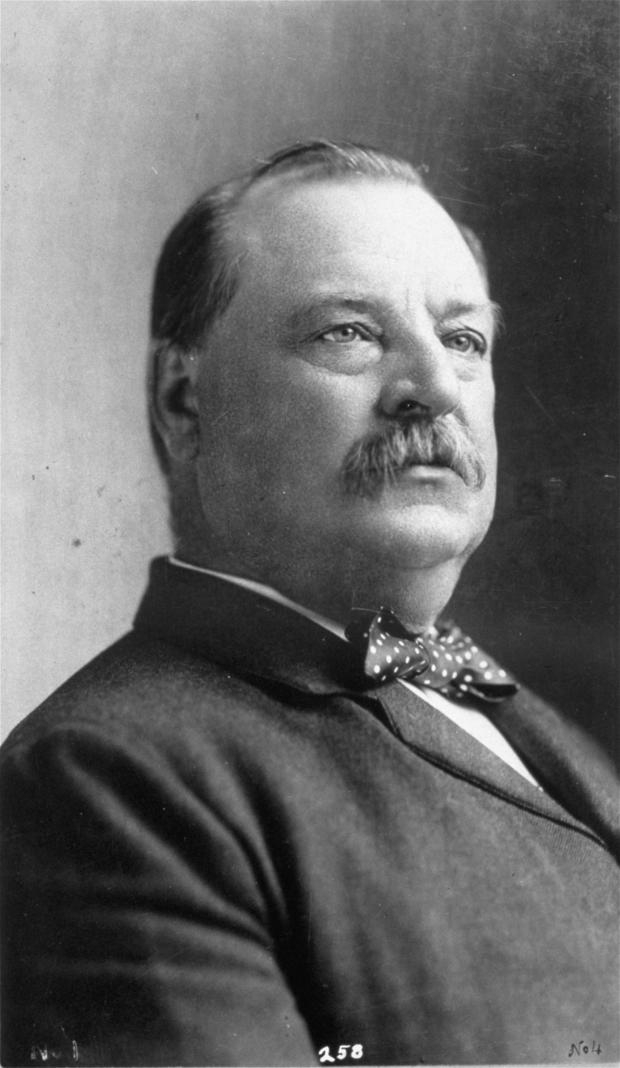 NYPL PICTURE COLLECTION/AP
NYPL PICTURE COLLECTION/APCleveland vetoed a bill that would have given government money to veterans, drought-stricken farmers and people with disabilities, and he sent in federal troops to break a railroad workers' strike.
He is the only president to leave the White House and later return for a second term.
22. William Howard Taft (1909-1913)
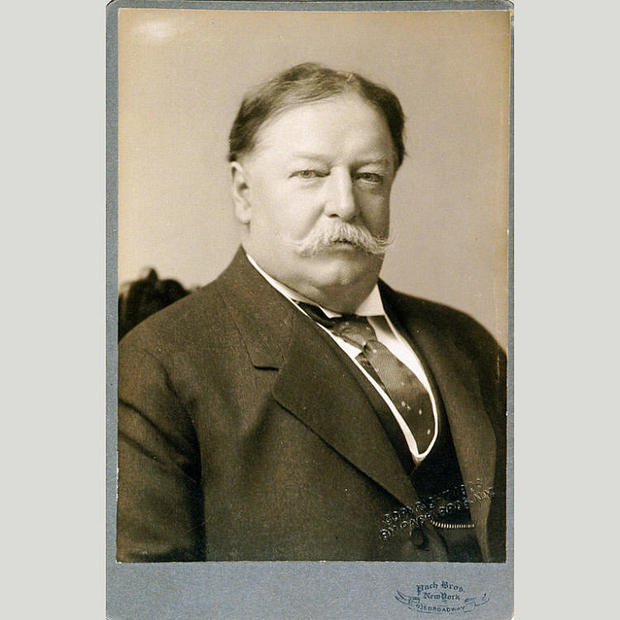 PACH BROTHERS STUDIO/NATIONAL PORTRAIT GALLERY
PACH BROTHERS STUDIO/NATIONAL PORTRAIT GALLERYHistorians rated Taft highly for intelligence and integrity.
Taft favored the law over politics and went on to serve as Chief Justice of the United States after his term in the White House.
21. George H.W. Bush (1989-1993)
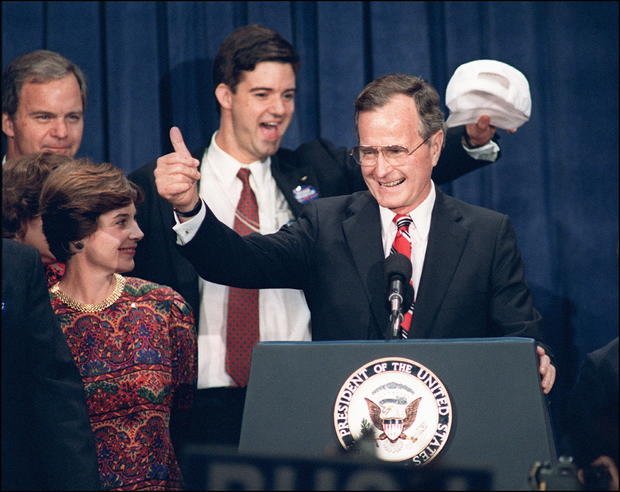 WALT FRERCK/AFP/GETTY IMAGES
WALT FRERCK/AFP/GETTY IMAGESHistorians gave high ratings to Bush for his handling of international relations.
Bush guided the country through the end of the Cold War and led a coalition to liberate Kuwait after Saddam Hussein's invasion. But he lost his bid for reelection amid and economic downturn.
20. William McKinley (1897-1901)
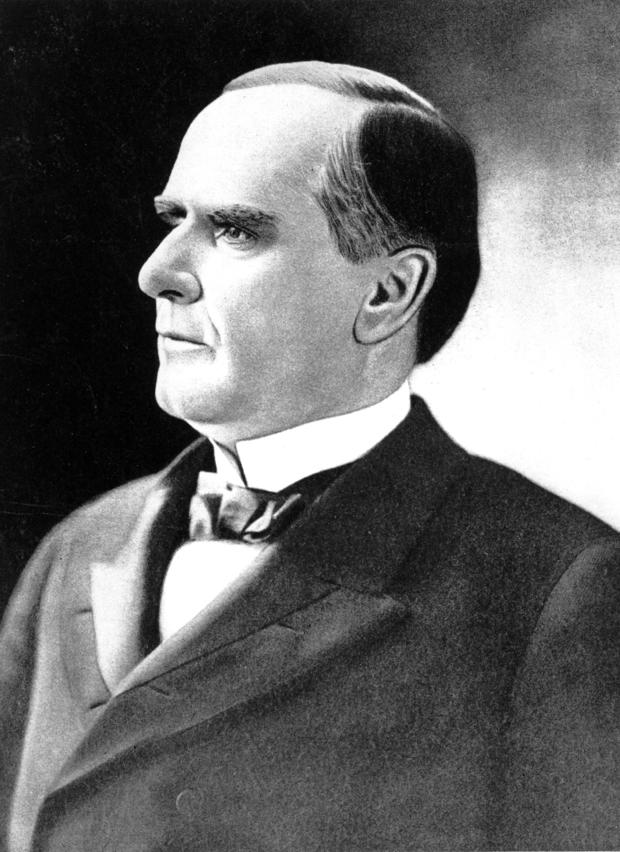 AP
APHistorians give McKinley high marks for his party leadership and relationship with Congress.
He enacted the highest protective tariff in history, and under his leadership America experienced an industrial boom. He also led the country through the Spanish-American War, in which the U.S. conquered the Spanish fleet in Cuba, seized Manila in the Philippines, and occupied Puerto Rico. He was assassinated by an anarchist less than a year into his second term.
19. Andrew Jackson (1829-1837)
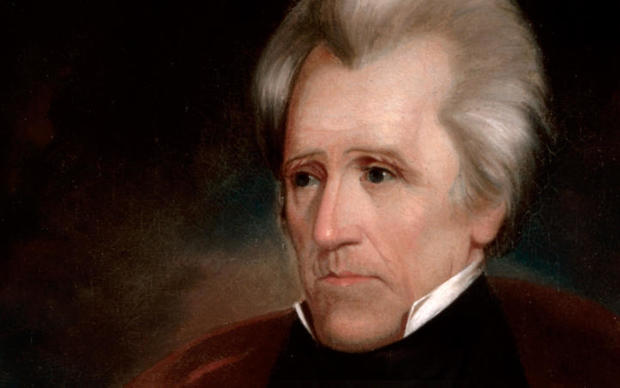 WHITEHOUSE.GOV
WHITEHOUSE.GOVHistorians rate Jackson highly for his willingness to take risks and for public persuasion abilities.
A polarizing figure, Jackson waged a political battle against the Second Bank of the United States, a private company which operated as virtually a government-sponsored monopoly. He also pushed for the forcible removal of Native Americans, resulting in thousands of deaths. The American electorate handed him a huge electoral victory for his second term.
18. John Quincy Adams (1825-1829)
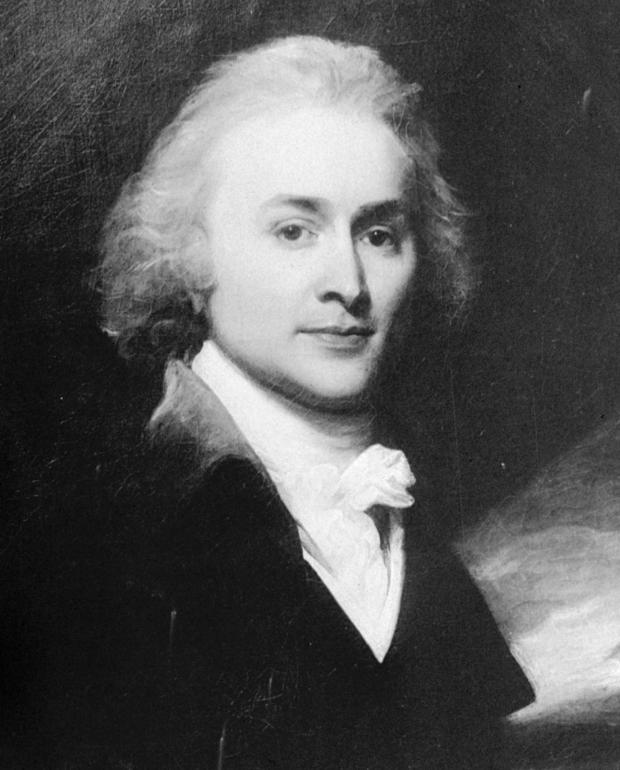 AP
APAdams ranked highly for his intelligence and moral authority.
His served during a time of great division in the country and faced a contentious Congress, but fought hard for civil liberties and the unification of the country.
17. Barack Obama (2009-2017)
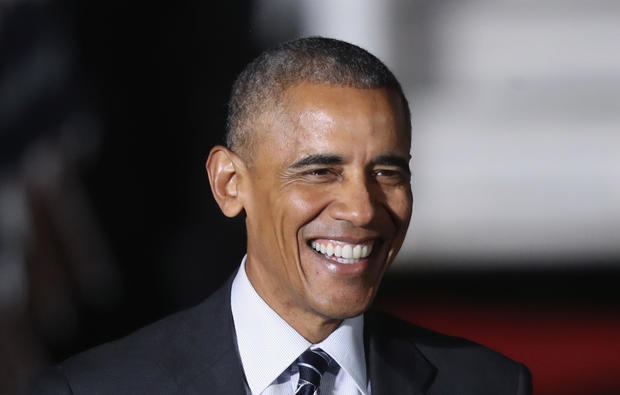 SEAN GALLUP/GETTY IMAGES
SEAN GALLUP/GETTY IMAGESObama's signature domestic policy accomplishment, the Affordable Care Act, also known as Obamacare, was unpopular with Republicans but extended health insurance coverage to 20 million more Americans. His administration helped guide the country through the Great Recession and rescued the U.S. auto industry.
Historians have given him weaker marks for his dealings with Congress and international relations.
16. Lyndon Johnson (1963-1969)
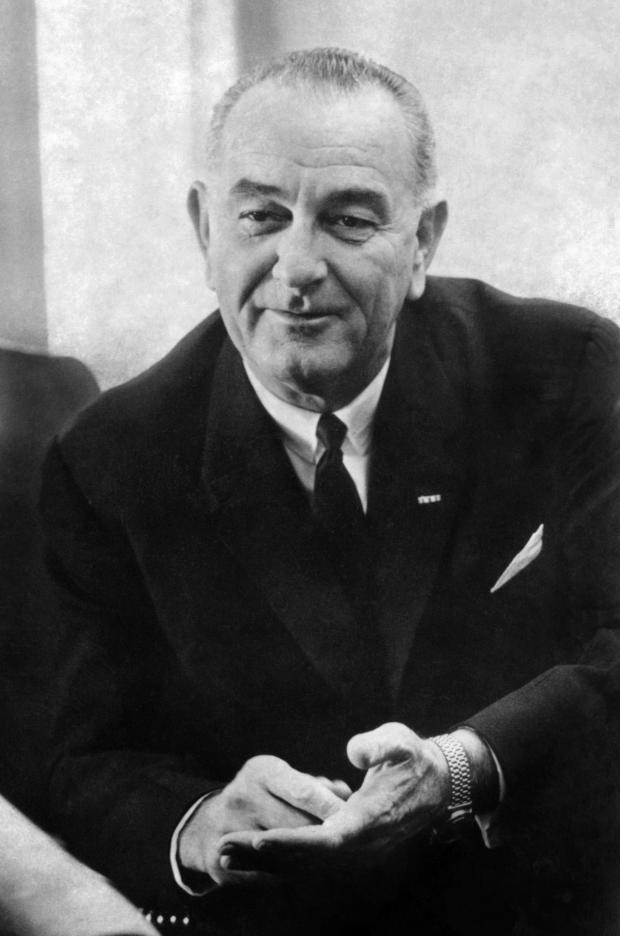 AFP/GETTY IMAGES
AFP/GETTY IMAGESAmong some presidential historians, Johnson tops the charts for his efforts in pursuing equal justice for all Americans.
Taking office after John F. Kennedy's assassination, Johnson secured enactment of the landmark Civil Rights Act. He urged the country "to build a Great Society, a place where the meaning of man's life matches the marvels of man's labor," which became his agenda, resulting in Medicare for the elderly, increased aid for education and anti-poverty programs.
15. Bill Clinton (1993-2001)
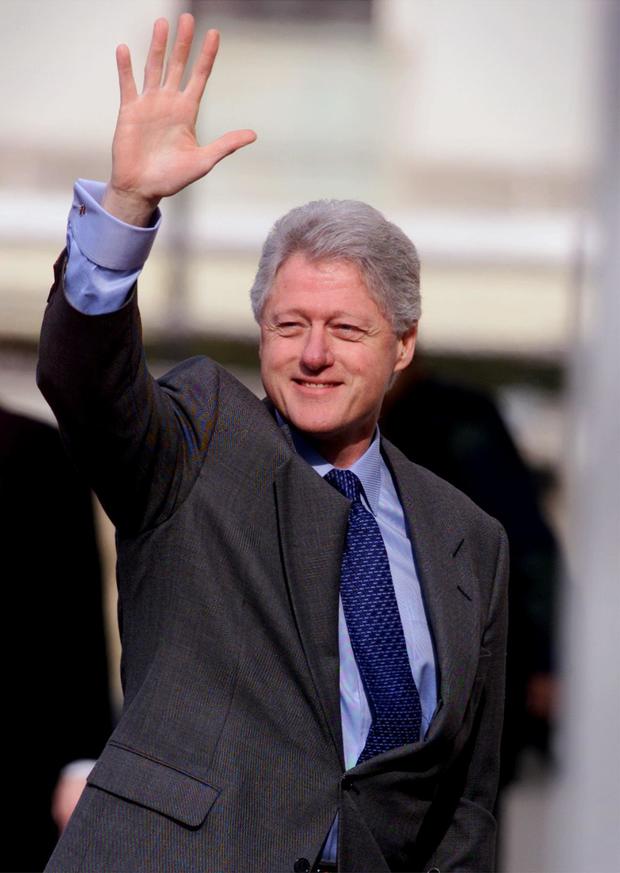 STEPHEN JAFFE/AFP/GETTY IMAGES
STEPHEN JAFFE/AFP/GETTY IMAGESClinton's highest rating in the survey is for his willingness to compromise.
The first Baby Boomer president, Clinton was the first Democrat since Franklin D. Roosevelt to win a second term, and among other achievements, he proposed the first balanced budget in decades and reached a budget surplus. In his second term he faced impeachment over his dishonesty about a liaison with a White House intern, but was acquitted by the Senate.
14. John Adams (1797-1801)
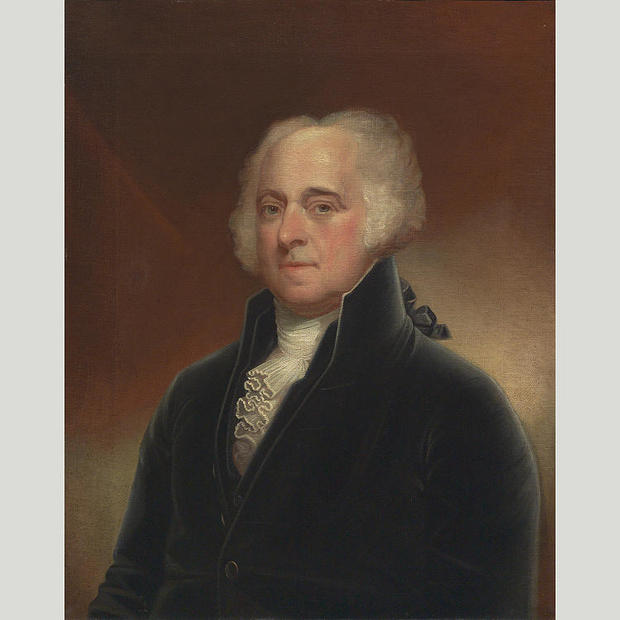 NATIONAL PORTRAIT GALLERY
NATIONAL PORTRAIT GALLERYAdams, the nation's second president, ranked highly for his integrity and handling of court appointments.
Despite growing hostilities with France, Adams never called for war and worked through negotiations to bring about a peace deal.
13. Ronald Reagan (1981-1989)
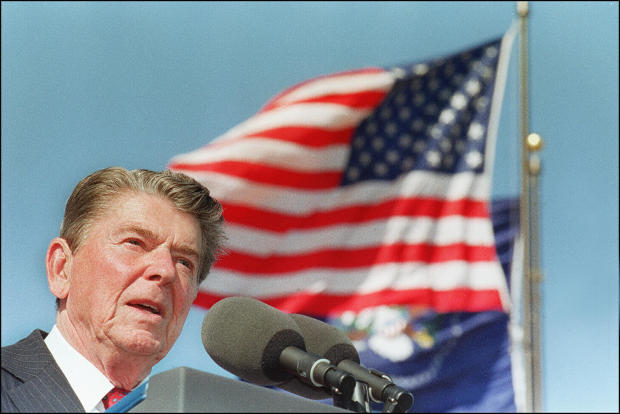 J. DAVID AKE/AFP/GETTY IMAGES
J. DAVID AKE/AFP/GETTY IMAGESReagan scored highly for public persuasion skills and setting the national agenda.
By working with Congress, Reagan was able to pass legislation that sped economic growth and strengthened national defense, advancing his vision of "peace through strength" in the years leading up to the end of the Cold War.
12. James K. Polk (1845-1849)
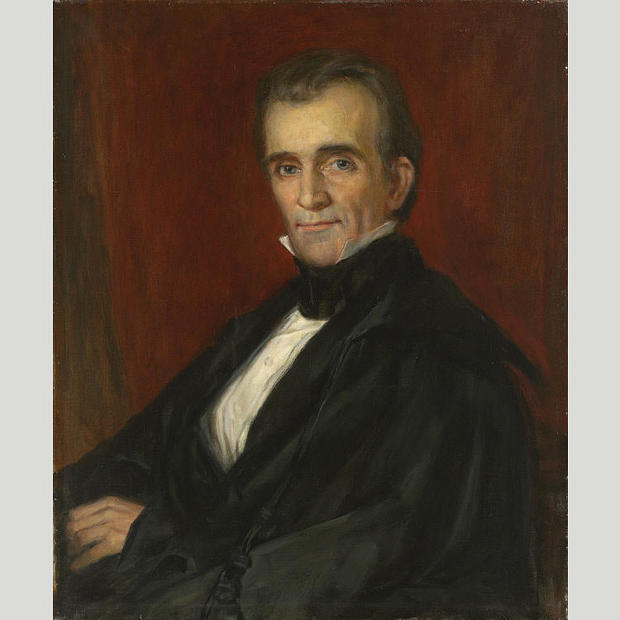 MAX WESTFIELD/NATIONAL PORTRAIT MUSEUM
MAX WESTFIELD/NATIONAL PORTRAIT MUSEUMPolk ranked highest for his vision and agenda-setting abilities.
Under Polk's leadership, the U.S. acquired more than 800,000 square miles of western land, extending its boundary to the Pacific Ocean.
11. Woodrow Wilson (1913-1921)
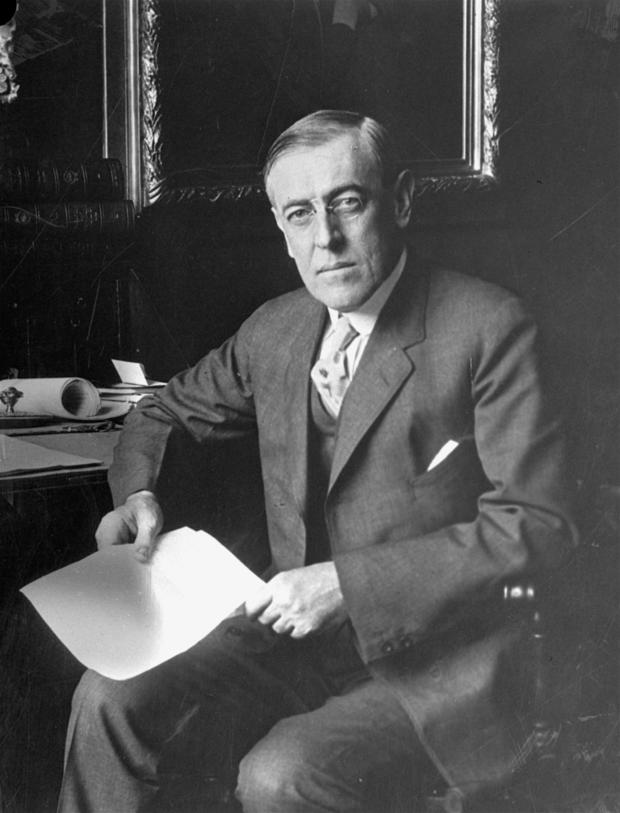 AP
APWilson rated highly for his vision and ability to set an agenda.
He moved many pieces of important legislation through Congress, and in 1917 convinced Congress that America could no longer remain neutral in World War I.
10. John F. Kennedy (1961-1963)
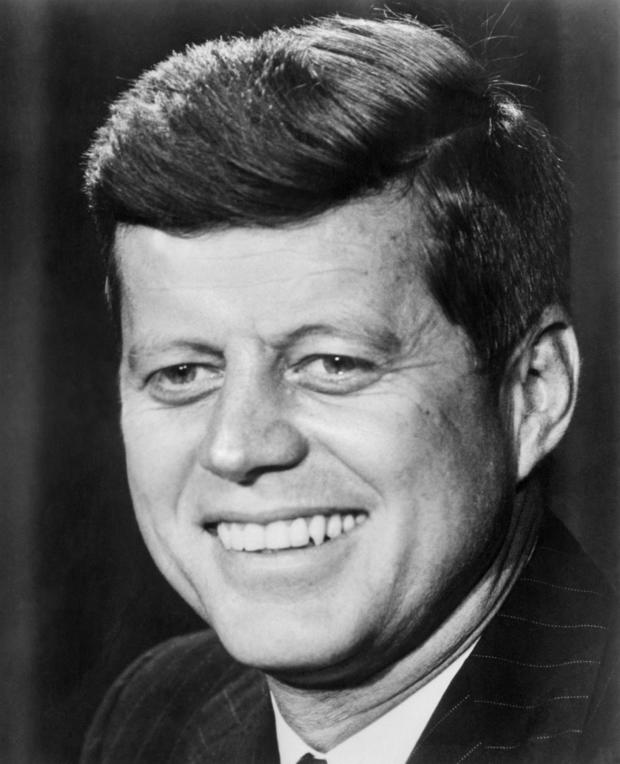 AFP/GETTY IMAGES
AFP/GETTY IMAGESHistorians credit Kennedy most for his skills in public persuasion and his vision. He also rates well for crisis management and handling international relations.
He stood up to the Soviets and successfully defused the Cuban Missile Crisis. He also inspired Americans by vowing to put a man on the moon, and he supported progress on civil rights. He was assassinated after barely a thousand days in office.
9. Harry Truman (1945-1953)
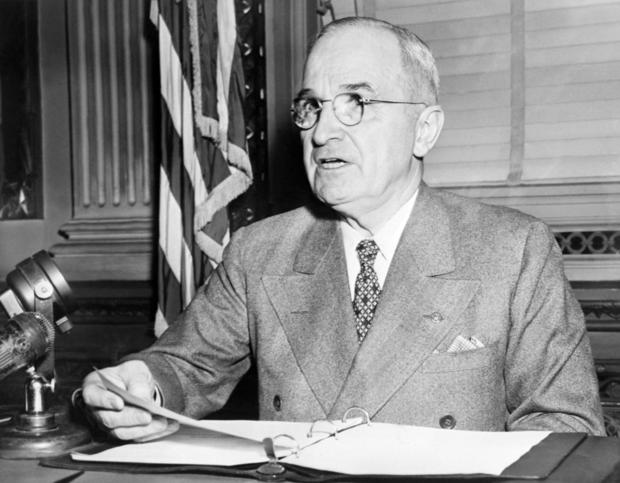 AFP/GETTY IMAGES
AFP/GETTY IMAGESTruman wins praise from historians for his foreign policy leadership. Though unpopular when he left office, he has become much more highly regarded by historians over the years.
After V-E Day, when Japan refused to surrender, he ordered atomic bombs to be dropped on Hiroshima and Nagasaki, finally ending World War II in the Pacific. Shortly thereafter, Truman watched the signing of the charter of the United Nations, established to preserve peace.
8. James Monroe (1817–1825)
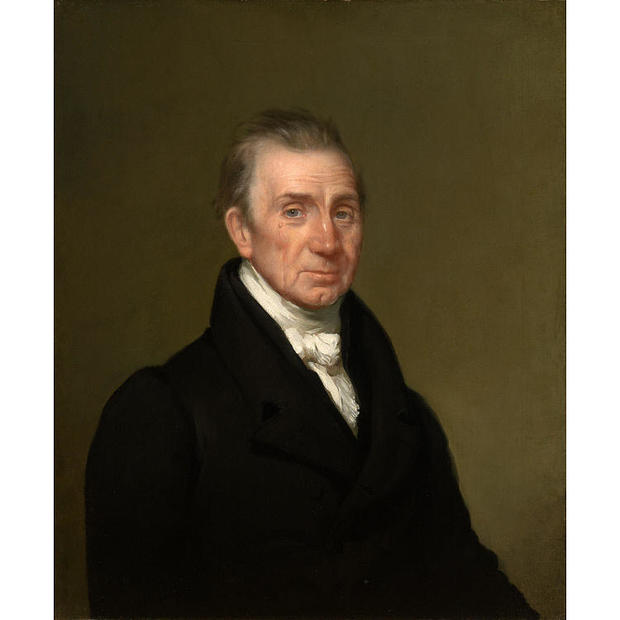 CHESTER HARDING/NATIONAL PORTRAIT MUSEUM
CHESTER HARDING/NATIONAL PORTRAIT MUSEUMHistorians commended Monroe most for his skillful international relations.
He established the Monroe Doctrine, which warned European nations not to colonize or interfere with the Western Hemisphere.
7. James Madison (1809-1817)
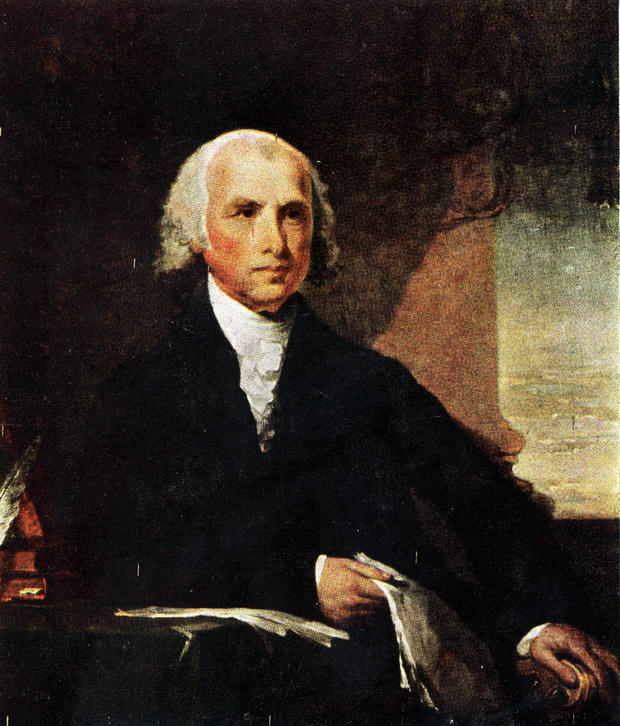 AP
APMadison ranked highly for intelligence.
He declared war against Great Britain in 1812. Americans considered the war a success, leading to a period of soaring nationalism.
6. Dwight D. Eisenhower (1953-1961)
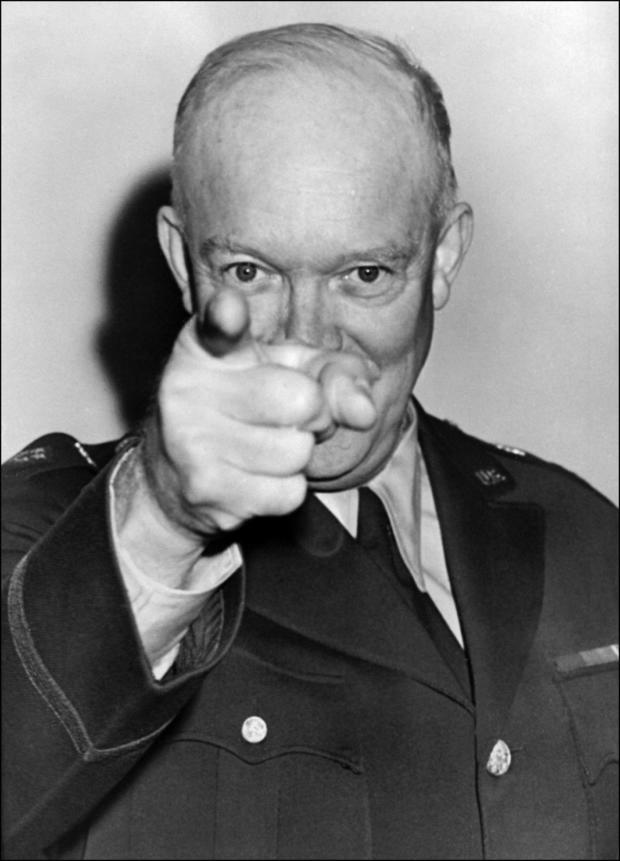 AFP/GETTY IMAGES
AFP/GETTY IMAGESEisenhower, a celebrated commander in WWII, saw his energies as president largely devoted to the onset of the Cold War. He obtained a truce after years of war in Korea, continued the desegregation of the U.S. armed forces, and sent federal troops to enforce a court order desegregating public schools in Little Rock, Arkansas.
5. Thomas Jefferson (1801–1809)
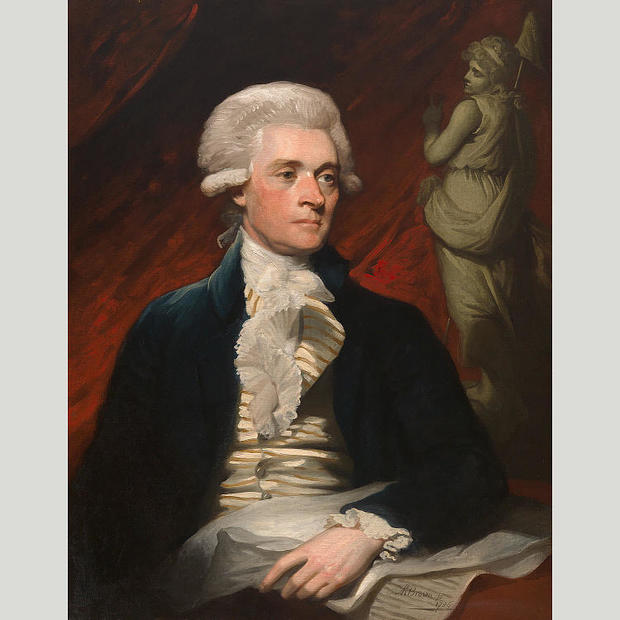 MATHER BROWN/NATIONAL PORTRAIT GALLERY
MATHER BROWN/NATIONAL PORTRAIT GALLERYJefferson was ranked highest in the survey for his intelligence and vision.
He was the the principal author of the Declaration of Independence, writing that "all men are created equal," even as he continued to own slaves. During his presidency he acquired the Louisiana Territory, vastly expanding the size of the country, and he slashed the national debt by a third.
4. Theodore "Teddy" Roosevelt (1901-1909)
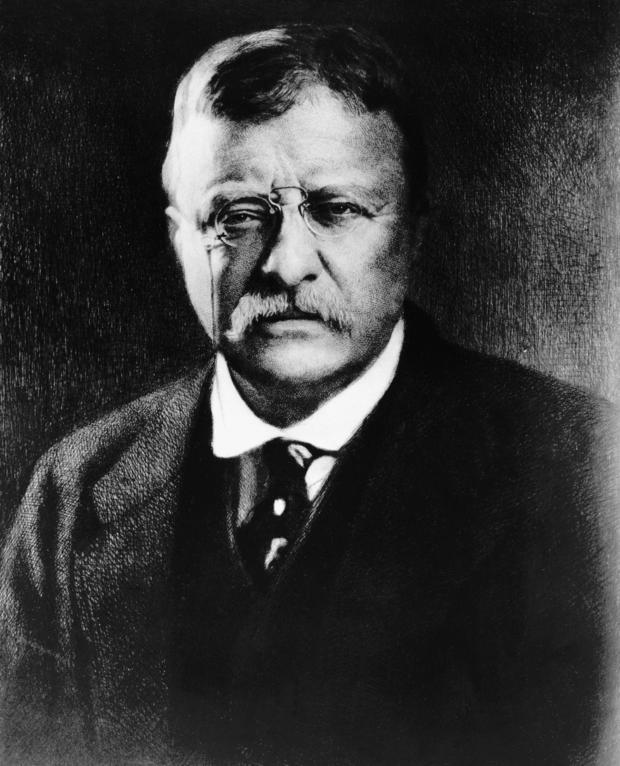 AP
APTheodore Roosevelt ranked highly for public persuasion and willingness to take risks.
Just 42 when he became the youngest president in the nation's history, he had the excitement and energy to convince Congress to pass progressive reforms and a strong foreign policy — exemplified by his motto, "Speak softly and carry a big stick." An avid outdoorsman, he oversaw the expansion of America's national parks.
3. Abraham Lincoln (1861-1865)
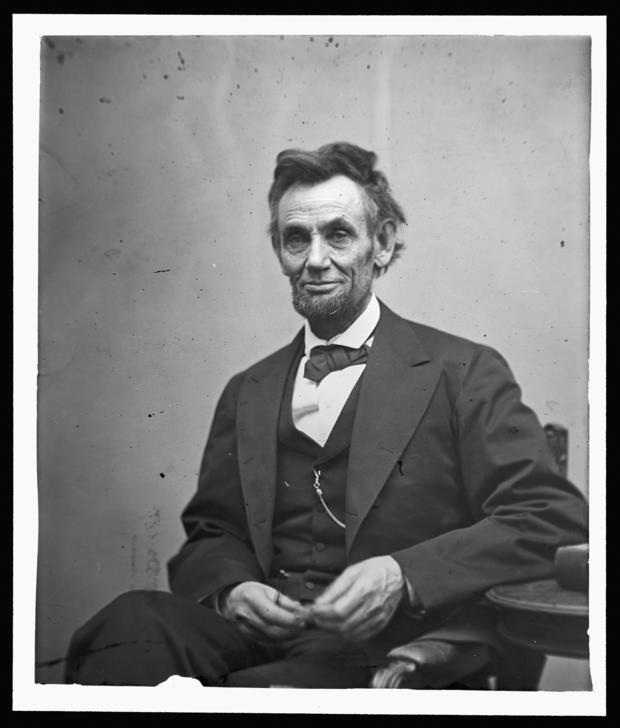 LIBRARY OF CONGRESS/GETTY IMAGES
LIBRARY OF CONGRESS/GETTY IMAGESAmong all the U.S. presidents, Lincoln takes second place for leadership ability and third place overall in the Siena survey. But in a separate survey of historians conducted by C-SPAN, Lincoln is rated No. 1.
He led the country through one of its most trying periods, the Civil War, and in 1863 signed the Emancipation Proclamation freeing the slaves.
2. Franklin D. Roosevelt (1933-1945)
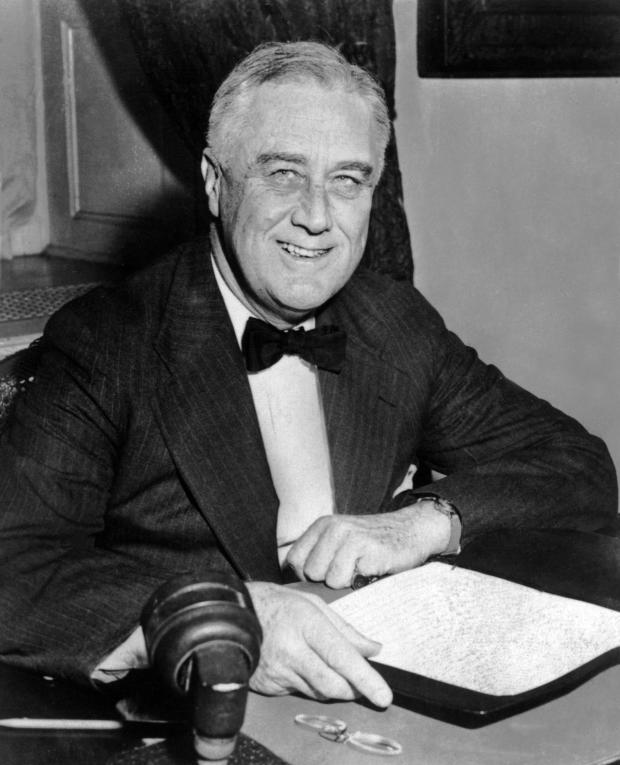 AFP/GETTY IMAGES
AFP/GETTY IMAGESHistorians laud Franklin D. Roosevelt for his skills at party leadership, ranking him first among all presidents in that category. He also ranked No. 1 in handling of foreign relations.
FDR assumed the presidency during the worst of the Great Depression, but assured the American people: "The only thing we have to fear is fear itself." He also led the U.S. through the perilous years of World War II. He is the only American president ever elected to four terms, though he died before completing the last one.
1. George Washington (1789-1797)
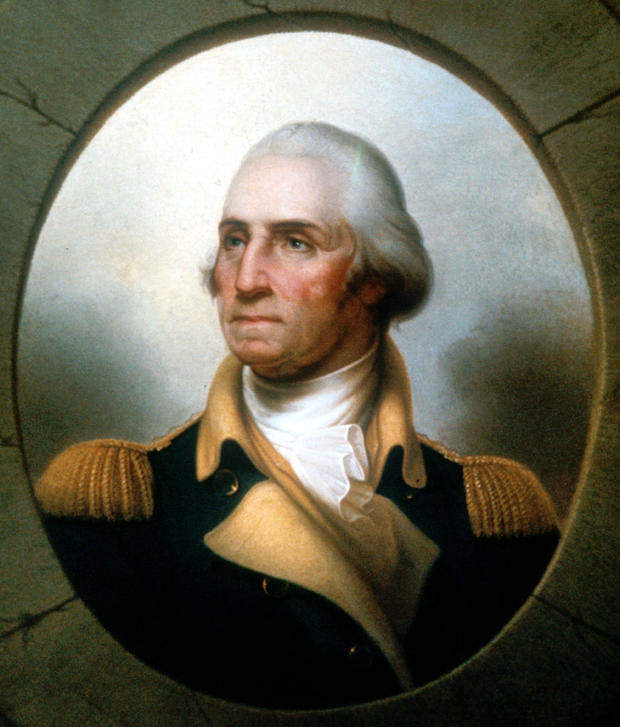 PRINT COLLECTOR/GETTY IMAGES
PRINT COLLECTOR/GETTY IMAGESThe nation's first president ranked above all others for moral authority, economic management, and overall performance within the context of his times.
Washington fought hard for the Constitution, feeling that the Articles of Confederation were not functioning well for the country. He was disappointed to see the country becoming more politically divided toward the end of his first term, and set a precedent by choosing to retire after his second.
First published on March 13, 2017 / 7:36 PM
Aucun commentaire:
Enregistrer un commentaire